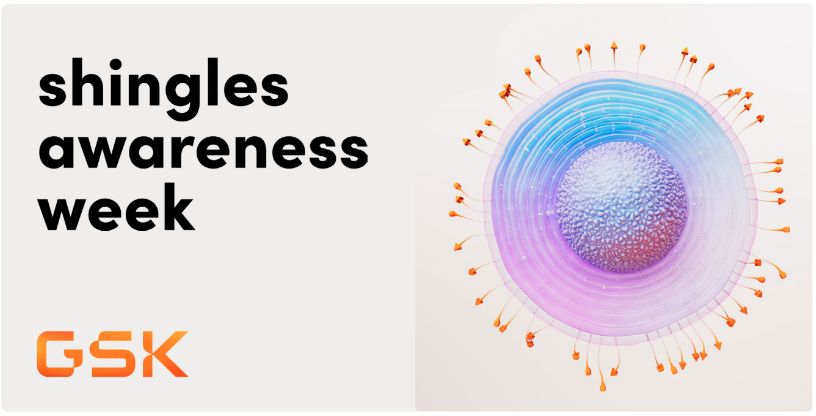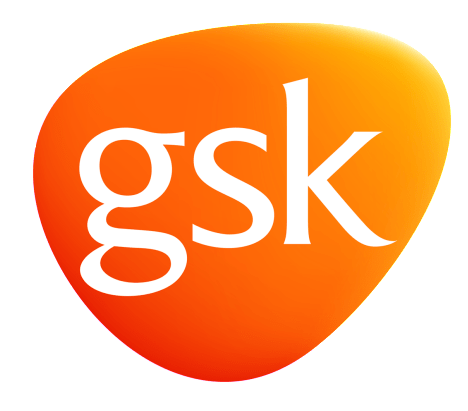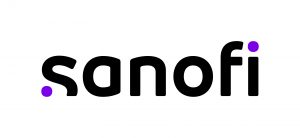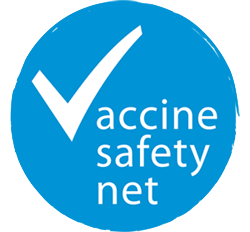Shingles Awareness Week
Why we need to keep talking about shingles
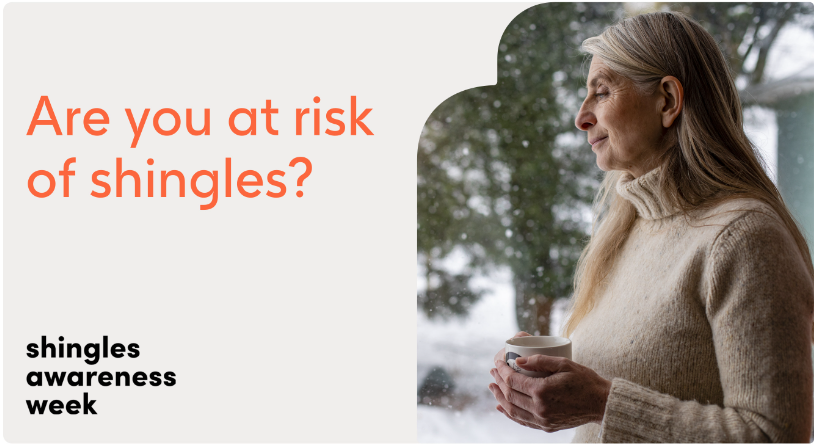
1 in 3 people will develop shingles in their lifetime[i], yet an average of 66% of people believe they are at low risk of developing shingles and 27% of people aren’t aware of their risk of developing shingles in the next 10 years[ii].
The International Federation on Ageing (IFA), in collaboration with GSK, is renewing the commitment to raising awareness of shingles for the second year, jointly hosting Shingles Awareness Week (February 29 – March 05).
About Shingles Awareness Week
Shingles Awareness Week is a global opportunity to encourage candid conversations about the debilitating complications of the disease that can rob people from enjoying precious life moments. The campaign theme this year is ‘press play on your moment, not the virus that causes shingles’.
What can I do to support Shingles Awareness Week?
Save the date, and make sure to follow your preferred IFA social media channel. You can support us in reaching as may people as possible by sharing, retweeting, and interacting with us online if you can.
The goal of Shingles Awareness Week is to increase understanding of the impact of the disease, address common misconceptions and encourage those concerned about shingles risks to speak to their healthcare professional to learn more about the disease.
Shingles typically presents as an itchy rash, with painful blisters across the chest, abdomen, or face[v]. The pain associated with shingles is often described as burning, shooting, or stabbing[vi]. Once the rash is gone, some patients can experience post-herpetic neuralgia (PHN), a painful condition which can last for several monthsiii
About GSK
GSK is a science-led global healthcare company with a special purpose: to help people do more, feel better, live longer. For further information please visit www.gsk.com/about-us.
References
[i] Harpaz, Rafael et al. “Prevention of herpes zoster: recommendations of the Advisory Committee on Immunization Practices (ACIP).” MMWR. Recommendations and reports : Morbidity and mortality weekly report. Recommendations and reports vol. 57,RR-5 (2008). Available at: https://www.cdc.gov/mmwr/preview/mmwrhtml/rr5705a1.htm Last Accessed January 24 2022
[ii] Ipsos MORI. “Adult perceptions of shingles risk” A5a. To what extent do you personally feel at risk – if at all – of getting shingles (again) in the following time periods? Available at: https://www.ipsos.com/ipsos-mori/en-uk/adult-perceptions-of-shingles-risk
[iii] Johnson RW et al. Herpes zoster epidemiology, management, and disease and economic burden in Europe: a multidisciplinary perspective. Therapeutic Advances in Vaccines. 2015;3(4):109–120
[iv] Bricout H, et al. Herpes zoster-associated mortality in Europe: a systematic review. BMC Public Health. 2015;15:466. Available at: https://doi.org/10.1186/s12889-015-1753-y Last accessed: Deccember 2022.
[v] Mueller, NH et al. Varicella Zoster Virus Infection: Clinical Features, Molecular Pathogenesis of Disease and Latency. Neurologic Clinics, 2008; 26;675-697
[vi] Bowsher D. Acute Herpes Zoster and Postherpetic Neuralgia: effects of acyclovir and outcome of treatment with amitriptyline. British Journal of General Practice; 1992; 42; 244-246
